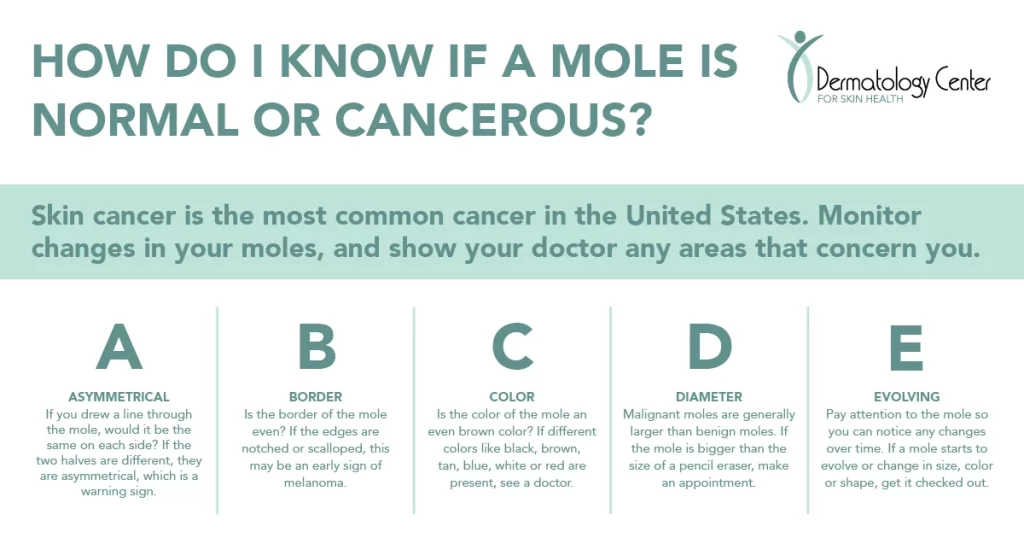Many individuals are affected by skin conditions like psoriasis, rosacea and eczema. These skin conditions typically are characterized by symptoms like red patches, itchy skin and white or silver looking scales. But, what if those symptoms are actually symptoms of or are masking skin cancer? Learn more about why these skin conditions can affect skin cancer detection, and why it’s important to receive a skincare diagnosis and skin cancer check by a certified dermatologist below.
COMMON SKIN CONDITIONS THAT CAN MASK SKIN CANCER
Common inflammatory skin conditions that can affect skin cancer detection include eczema, psoriasis and rosacea.
- Eczema: According to the National Eczema Association, 31.6 million people in the United States have some form of eczema. This skin condition is characterized by extremely itchy and scaly patches typically found on the elbows, knees and face.
- Psoriasis: According to the American Academy of Dermatology (AAD), approximately 7.5 million people in the United States have psoriasis. The most common form of psoriasis is plaque psoriasis, which is characterized by red, raised patches of skin covered in white/silver scales.
- Rosacea: Rosacea affects 16 million Americans, according to the AAD, and is most common in people between the ages of 30 and 60, women or individuals who have a family history of rosacea. This skin condition is characterized by red patches and visible blood vessels on the cheeks, nose, chin, forehead and eyelids, and is commonly mistaken for other skin conditions.
Because eczema, psoriasis and rosacea are all inflammatory conditions, they can both mask and imitate skin cancer, leading to late skin cancer detection. It is important that if you are experiencing any unusual signs not associated with any of these skin conditions, make an appointment with a certified dermatologist.
SKIN CANCER SIGNS
Skin cancers affects more than one million Americans every year and is the most common form of cancer. There are three main types of skin cancer:
- Basal cell carcinoma (BCC) is the most common type of skin cancer, characterized by pink patches around the skin, a non-healing ulcer, a pimple that doesn’t heal, or a lesion that bleeds spontaneously. BCC can develop through sun exposure and tanning.
- Squamous cell carcinoma (SCC) is the second most common skin cancer, characterized by red, firm bumps, scaly patches. SCC develops in areas that are exposed to the sun the most like the ears, neck and arms.
- Melanoma is the most aggressive form of skin cancer, characterized by dark spots on the skin (similar to moles). Melanoma can lead to death if it is not diagnosed at an early stage.
If you have any of these characteristics and think it’s a skin condition instead of skin cancer, it’s still best to see a dermatologist. To check for signs of skin cancer, follow these five steps:
- Examine the whole body (front, back and both sides) in a full-length mirror.
- Check elbows, forearms, underarms and palms.
- Sit down and check the legs (front and back), toes and between the toes and the soles of the feet.
- Use a smaller mirror to check the back of the neck and scalp.
- Use the smaller mirror to check the back and buttocks.
If you notice changes in moles, have a wound that looks like psoriasis, eczema or rosacea that is bleeding or notice any other irregular symptoms, see a dermatologist. Changes that you should be looking for include:
- Large brown spots with darker spots inside of it
- Dark lesions on the palms of the hands or soles of the feet, fingertips, toes, mouth, nose or genitalia
- Translucent and dome-shaped growths
- Brown or black streaks under the nails
- A sore that heals and reopens repeatedly
- Clusters of scaly lesions that are pink/red and grows slowly

THE IMPORTANCE OF MAKING AN APPOINTMENT WITH A TRAINED DERMATOLOGIST
While many phone apps are being developed to spot signs of skin cancer, they should really only be used in the awareness and education stages of skin cancer, not detection. If you think you have skin cancer, contact a dermatologist to have the best positive outcome. A trained dermatologist will be able to make the best diagnosis and treatment recommendation for you after a skin cancer check appointment.
During a skin cancer check, you should expect to go over any changes you’ve noticed on your skin, including moles that concern you. Your dermatologist will inspect you thoroughly from head to toe. Your dermatologist has the trained eye to look for skin lesions that are suspicious for skin cancer.
If your dermatologist finds anything that concerns them, they can biopsy the area and recommend the best course of treatment.
If you are concerned about changes in your skin or believe that your skin condition is masking skin cancer, schedule an appointment with one of our dermatologists for a skin cancer screening.


